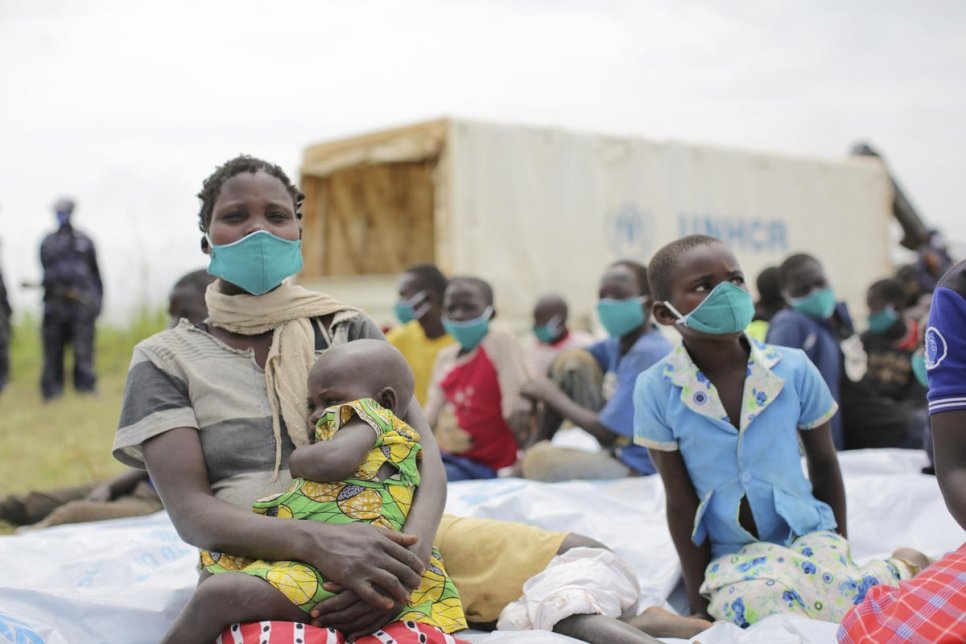
Over 3,000 Congolese refugees arrive in Uganda in three days

More than 3,000 refugees from the Democratic Republic of Congo (DRC) arrived in Uganda between Wednesday and Friday last week during a temporary opening of two border crossing points at Golajo and Mount Zeu, northwestern Uganda.
According to local authorities, the refugees were previously a part of a larger group of approximately 45,000 people who had attempted to flee towards the Ugandan border with DRC shortly after deadly clashes erupted between armed militia groups in Ituri province on 17 and 18 May.
Some have been able to return to their areas of origin while others remained close to the border, unable to cross for more than a month due to closure of borders on the Uganda side to contain the spread of COVID-19.
The group included 33 pregnant women while 65 percent of the new arrivals are children.
They have been taken to the Zeu Farm Institute, an old training center for farmers which now serves as a quarantine facility.
UNHCR has installed 328 family tents as well as nine tanks, health screening areas, toilets and hand-washing facilities. In addition the agency and partners are providing food, water, medical checks and temporary shelter, health teams and an ambulance for those that require hospitalization.
The Ugandan Health Ministry has been conducting sample COVID-19 testing, with the first 570 samples returning negative. Refugees have received doses of Vitamin A and vaccinations against cholera, measles, rubella and polio.
Following the mandatory quarantine period of 14 days, in line with national guidelines and protocols, they will be transported to existing refugee settlements, according to UNHCR spokesperson Charlie Yaxley
UNHCR welcomes the decision by the Government of Uganda to allow the group of refugees to enter the country and receive life-saving aid and protection. This effort demonstrates how, through quarantines, health screenings and other measures, States can uphold their obligations under international law during the pandemic while at the same time limiting potential transmission of the virus, Yaxley stated.
“With over 1,000 COVID-19 cases in Uganda, UNHCR continues to support the Government with its COVID-19 response, by constructing and strengthening quarantine and isolation facilities and increasing handwashing supplies and availability of masks.”
“Many of our transit and reception facilities across the country have been converted into quarantine centers, where we are supporting hundreds of Ugandans and refugees on a daily basis,” Yaxley said.
However, the refugee response in Uganda continues to face multiple challenges due to underfunding, including severe food ration cuts.
UNHCR has received just 18 per cent of the US$357 million required for its operation in Uganda in 2020. In the immediate term, US$28 million is urgently needed to continue the current level of assistance to refugees in Uganda, including basic health services.
UNHCR appeals for international solidarity to help Uganda uphold its commitments towards the Global Compact on Refugees and maintain its progressive refugee policy during these difficult times.






